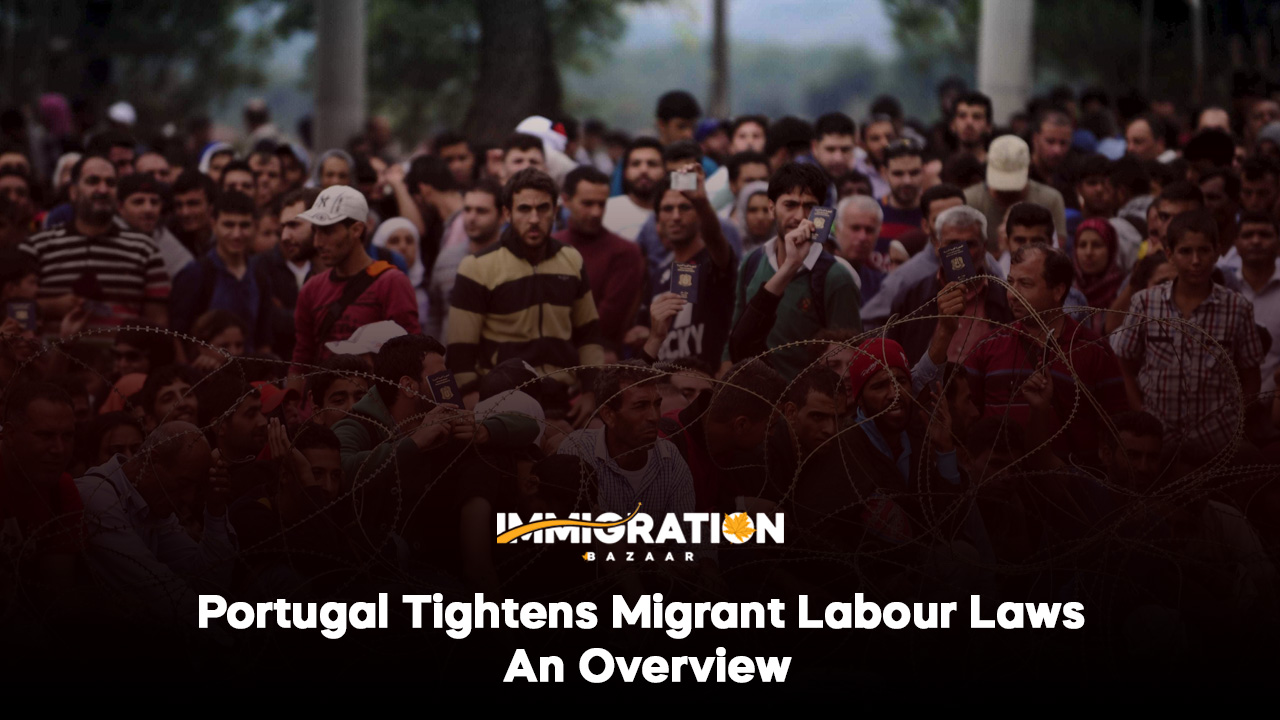Introduction
Portugal has recently announced a significant change to its migrant labor laws, which will end work permits for certain categories of workers. This policy shift primarily targets migrants from outside the European Union (EU), aiming to better regulate the influx of foreign workers and prioritize employment opportunities for domestic citizens. The decision has sparked debates regarding its potential economic and social impacts, especially in industries that heavily rely on migrant labor.
Context of Migrant Labor in Portugal
- Migrant Labor Landscape: Over the past few decades, Portugal has become increasingly dependent on migrant labor, particularly in sectors like agriculture, construction, and hospitality. Many of these workers come from countries outside the EU, seeking better economic opportunities.
- Economic Factors: Portugal’s economy has seen a resurgence following the 2008 financial crisis, leading to an increased demand for labor. However, this demand has often been met by foreign workers, leading to concerns among policymakers about the sustainability of such practices.
- Government’s Rationale: The Portuguese government has articulated its need to prioritize local employment, especially in light of rising unemployment rates and economic recovery post-pandemic. Stricter laws regarding migrant labor are viewed as a way to protect domestic workers and enhance job security for citizens.
Key Changes in Migrant Labour Laws
- End of Work Permits for Certain Workers: The new laws will eliminate work permits for specific categories of non-EU workers. While the government has not detailed all affected sectors, it is expected that industries such as agriculture and hospitality, which typically employ a significant number of migrant workers, will be impacted.
- New Regulations for Migrant Workers: The government is implementing stricter regulations that will limit the access of non-EU workers to the Portuguese job market. This includes heightened scrutiny on the hiring processes for migrants and more rigorous background checks.
- Support for Domestic Employment: Alongside the restrictions, the government plans to invest in training programs and initiatives aimed at enhancing the skills of domestic workers. This is intended to fill the gaps left by the reduced influx of migrant labor.
Impacts on Various Industries
- Agriculture: The agricultural sector in Portugal has long depended on migrant labor, especially during the harvest season. The end of work permits for these workers could lead to labor shortages, affecting productivity and output.
- Construction: Similar to agriculture, the construction industry also relies heavily on migrant workers. With stricter regulations, the availability of skilled labor may decrease, potentially slowing down ongoing and future projects.
- Hospitality: The hospitality sector, which includes hotels and restaurants, has faced significant challenges during the COVID-19 pandemic. Limiting the number of migrant workers could exacerbate staffing issues and affect service quality.
Social Implications
- Debate on Economic Contribution: Critics argue that migrants significantly contribute to the Portuguese economy and that reducing their numbers could lead to economic stagnation in critical sectors. Supporters of the new laws contend that prioritizing local workers is essential for national interests.
- Integration Challenges: The stricter laws may also impact the integration of existing migrant populations. Uncertainty about work permits can lead to instability for those already living and working in Portugal, resulting in potential social tensions.
- Public Reaction: The announcement has been met with mixed reactions from the public, with some supporting the government’s position while others express concern for the economic implications. Protests and public discussions are likely as various stakeholders voice their opinions.
Economic Consequences
- Impact on GDP: Economists are wary of the potential negative effects of reduced migrant labor on Portugal’s GDP. Industries like agriculture and construction are vital to the economy, and any disruption could lead to broader economic challenges.
- Long-Term Effects on Labour Market: While the government aims to bolster domestic employment, the long-term effects of these policies on the labor market remain uncertain. If industries cannot fill positions with local workers, it could lead to a decline in overall productivity.
- Alternatives to Migrant Labor: The government will need to explore alternatives to fill labor shortages created by these new laws. This could include investing in technology or streamlining processes to improve efficiency.
Conclusion
The recent tightening of migrant labor laws in Portugal marks a significant shift in the country’s approach to foreign workers. By ending work permits for certain categories of non-EU workers, the government aims to prioritize domestic employment and regulate the influx of migrants. While the rationale behind these changes is grounded in economic recovery and protection of local jobs, the potential implications for various industries and the economy as a whole are profound. As discussions unfold, it remains critical for stakeholders to engage in meaningful dialogue to address the challenges posed by these new regulations.
For more global visa and immigration updates, stay tuned to Immigration Bazaar and follow this page.







